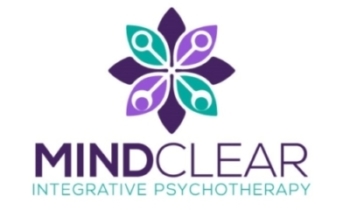Trauma Therapy
Our clinicians have a wide range of experience and personal style. At the same time, all of our clinicians have extensive training and/or are undergoing intense training in working with the aftermath of complex trauma. We have presented internationally and locally, published research papers, books, and chapters, and worked with some of the top researchers in the world on the subjects of dissociation, chronic depression, suicidality, rage, abuse, psychosis, and developmental trauma.
We are here to meet you where you are at. In other words, so long as you might benefit from our private practice setting, we don’t ever turn someone away because of diagnosis, symptoms, or because you’re “too much.”
Trauma can affect anyone at anytime. It cannot be defined by anyone other than the person who has experienced it. In general, it’s any major experience that overwhelms a person’s ability to cope. Trauma therapy is a difficult process of healing painful wounds and learning to reconnect … but a process well worth it.
What is complex trauma?
Trauma is not just about major events that can easily be identified. What affects you as a children is very different than that which disturbs you as an adult. Chronic stress, family dysfunction, bullying, early loss, poverty, racism, frequent experiences of being criticized or invalidated, and verbal abuse can all be experienced in the body as traumatic, and are more complex than a single event that may, on the surface, seem worse.
You don’t just get over these things – they stick with you until you are able to heal.
Traumatic experiences can manifest in adulthood in any number of ways, including:
- Relationship difficulties
- Fears of commitment and intimacy
- Feelings of isolation and loneliness
- Self-hatred
- Depression
- Excessive drinking or substance use
- Chronic anger
- Feeling like no one understands you or cares
- Self-destructive behaviors
- Memory problems
- Anxiety and panic
- Nightmares
- Chronic feelings of shame and guilt

Photo by Kira auf der Heide on Unsplash
Healing old wounds requires building safe and trusting relationships with oneself and others. Therapy can be a place where one can learn how to find safety in a world that often doesn’t provide it.
Trauma may impact every area of your life, but it doesn’t have to define you. We offer individualized treatment that will help you manage trauma-related challenges and improve your relationships.
If you’re not yet ready for trauma therapy, there still are some things you can do to cope with the difficulties resulting from traumatic and adverse experiences.
Exercise and eat healthy – You probably already know this, but it still needs saying. The way we treat our bodies greatly affects our overall mood and sense of self. Of course, it goes both ways – if you don’t like yourself very much, it’s hard to treat yourself nicely. Nonetheless, caring for yourself is important for no other reason than because you deserve to be treated well.
Spend time with others – While friends and loved ones may not always understand or be able to help with your pain, just being in the presence of others can be soothing. Even just spending some time at a store or coffee shop can put a dent in the feelings of emptiness and loneliness that can often come with past trauma.
Enjoy your alone time – Although we are social animals and need people, we sometimes also just need time to be alone. This does not mean give in to your urges to isolate and withdraw; rather, it means try to actually enjoy being in the presence of yourself. Take a bath, give yourself a spa day, play some music, sing, laugh, roll on the floor, whatever makes you feel even an ounce of joy for a moment is totally worth it.
Distraction and Re-focusing – It is important to stay focused in the present and on what matters in your life. Sometimes the best thing we can do for ourselves is to actively distract from the pain. Focus on work, hobbies, projects, helping others, an attainable goal, or learning something new. Just be careful that you don’t completely avoid your pain for too long.
For more information and tips, check out our resources page!
If you are interested in seeing if therapy might be helpful for you, please contact us at your convenience.
For rates and insurance information, visit our rates page.





